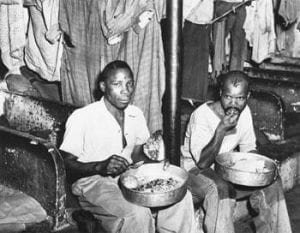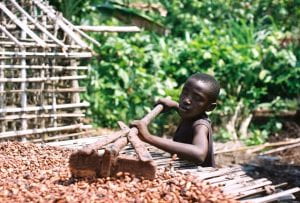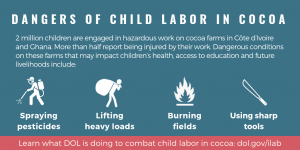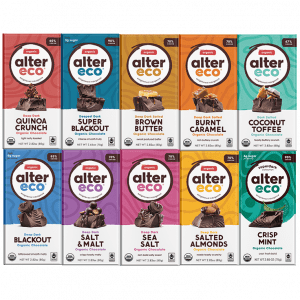Learning that contemplation practice would be part of this course brought me some anxiety. As one who struggles when invited to “focus on the breath,” mindfulness goals are slain by an internal battle of brain versus lungs. My Zen façade hides a bar brawl of distractions fighting for my attention. Our class has contemplated hunger, exotic foods, a raisin… As the course progresses, I’m realizing these sessions aren’t necessarily a quest for Zen or epiphany as much as they are a space to ask. To feel. To notice. I am reassured by Professor LItfin’s insights into the mind’s natural tendency to roam and how contemplative practice works to “encourage students to actively integrate their subjective experience into their objective learning.” We are connected to the goings on “out there.” Our experiences are relevant and even essential for deep learning.
A recent contemplative practice was done after having viewed clips where cocoa famers in Africa’s Ivory Coast taste chocolate for the first time and another revealing persistent child labor in cocoa farming. Thoughts after watching:
- What a way to illustrate inequities and ironies of the global food system
- Is chocolate ruined forever?
I’m joking about #2. Kind of – chocolate is considered an essential business in my house. But paying attention to the lives behind food brings awareness and hopefully, action. Look yourself and your food in the eye, acknowledge that it was planted, tended, harvested, and processed by people.
Who’s lives are behind this square of chocolate? Does fair trade mean new improved taste with less guilt?

A young boy uses a machete to break cocoa pods at a farm on Africa’s eastern Ivory Coast. Image Source
Sometimes the clarity we seek in the moment eludes us only to be realized later. For me, the questions multiply. Having had some room to reflect upon our contemplative sessions, I continue grappling with my place in the food ecosystem. How can I be more than a consumer? If further contemplation of food, hunger, and our role in food systems can guide me towards understanding, or at least deepen my appreciation for food, I’ll keep practicing.
I discovered this chocolate scorecard which ranks brands according to fair labor practices and environmental impact.
Sources
BBC News. (2011, November 10). Cocoa farms still using child labour [Video file]. Retrieved from https://www.bbc.com/news/av/world-africa-15686731/cocoa-farms-in-ivory-coast-still-using-child-labour
Green America . (n.d.). Child Labor in Your Chocolate? Retrieved May 4, 2020, from https://www.greenamerica.org/end-child-labor-cocoa/chocolate-scorecard
Litfin, K. T. (2020). The Contemplative Pause: Insights for Teaching Politics in Turbulent Times. Journal of Political Science Education, 16(1), 57–66. https://doi.org/10.1080/15512169.2018.1512869
O’Keefe, B. (2016, March 1). Bitter Sweets. Retrieved May 2, 2020, from https://fortune.com/longform/big-chocolate-child-labor/
VPRO Metropolis. (2014, February 21). First taste of chocolate in Ivory Coast – vpro Metropolis [Video file]. Retrieved from https://www.youtube.com/watch?v=zEN4hcZutO0














